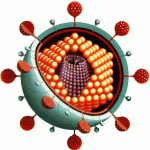Virology
|
13 february 2016 03:01:20 |
| Study of endothelial function response to exercise training in hypertensive individuals (SEFRET): study protocol for a randomized controlled trial (Epidemiologic Perspectives & Innovations) |
|
Tweet Background:
Endothelial dysfunction is a hallmark of diabetes mellitus and systemic arterial hypertension (SAH) and an early maker for atherosclerosis. Aerobic exercise training is known to enhance endothelial function, but little is understood about the effects of resistance or combined exercise training on endothelial function. The aim of this study is to investigate the effect of a 12-week aerobic (AT), resistance (RT), or combined (aerobic and resistance, CT) training program on endothelial function and assess associated effects on blood pressure in individuals with SAH.Methods/designEighty-one subjects with SAH aged 18 to 70 years will be selected and randomly assigned to three types of exercise training: AT, RT or CT. The study will involve the following procedures and tests: anamnesis, anthropometric assessment, echocardiography, blood pressure measurements through ambulatory blood pressure monitoring, flow-mediated dilation, ergospirometry, one repetition maximum test (1-RM), and blood collection (number of circulating endothelial progenitor cells, number of circulating endothelial microparticles, lipid profile, glucose, glycated hemoglobin, and creatinine). The AT intervention will consist of a 40-min exercise session with progressive intensities ranging from 50 to 75 % of heart rate reserve. The RT intervention will consist of a 40-minute session with four sets of six to 12 repetitions with a rest period of 60 to 90 seconds between each set and each type of exercise. Weight loads will be adjusted to 60 to 80 % of 1-RM for six types of exercise. The CT intervention will consist of a 20-min aerobic exercise session, followed by an additional 20-min resistance exercise session; each resistance exercise will have two sets less to match the total training volume.DiscussionThe study results are expected evidence of cardiovascular protective effects of different types of exercise training through the modulation of endothelial function in hypertensive individuals. Knowing the magnitude of improvement of endothelium-dependent vasodilation for the different types of exercise training can provide scientific evidence for the prescription of exercise programs for vascular protection targeting hypertensive individuals.Trial registrationThe Brazilian Clinical Trials Registry (http://www.ensaiosclinicos.gov.br/) under RBR-9ygmdn and dated 1 March 2015. |
| 158 viewsCategory: Pathology, Virology |
 Evaluating the clinical and cost effectiveness of a behaviour change intervention for lowering cardiovascular disease risk for people with severe mental illnesses in primary care (PRIMROSE study): study protocol for a cluster randomised controlled trial (Epidemiologic Perspectives & Innovations) Evaluating the clinical and cost effectiveness of a behaviour change intervention for lowering cardiovascular disease risk for people with severe mental illnesses in primary care (PRIMROSE study): study protocol for a cluster randomised controlled trial (Epidemiologic Perspectives & Innovations)MiR-23b targets cyclin G1 and suppresses ovarian cancer tumorigenesis and progression (Epidemiologic Perspectives & Innovations) 
|
| blog comments powered by Disqus |
MyJournals.org
The latest issues of all your favorite science journals on one page
The latest issues of all your favorite science journals on one page



